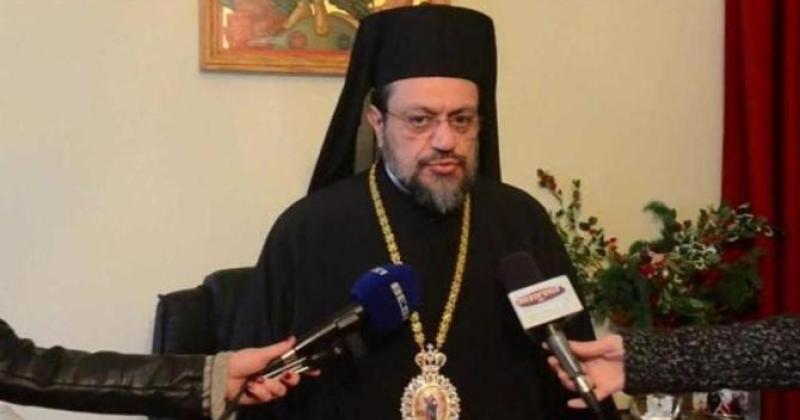Interview with Chrysostomos Savatos, Metropolitan of Messinia: “May the Holy Spirit enlighten the minds of primates. We need to get across an image of unity”.
“May the Holy Spirit enlighten the minds of primates, this is an historic moment and none of the Orthodox Churches must be absent from this pan-Orthodox Council. We need to get across an image of unity…”. Chrysostomos Savatos, the 55-year-old Metropolitan of Messinia, in the Greek region of the Peloponnese, is a professor of dogmatics at the University of Athens, a member of the council for dialogue and Christian unity and will represent the Greek Orthodox Church at the pan-Orthodox Council which begins this coming 19 June in Crete. As is known, the event has been clouded by various factors in recent weeks, the latest of these being the request put forward by the Bulgarian Orthodox Church for the event in Crete to be postponed due to disagreements over the preparatory texts.
On Monday 6 June, the Ecumenical Patriarchate of Constantinople published a statement reminding all dissenting parties that the decisions regarding the date, the procedures and the texts to be discussed during the pan-Orthodox Council - the first to take place in centuries – were taken based on a mutual agreement between primates of all Churches. Therefore, any disagreements, amendments or proposals may be presented during the course of the Council discussions.
Metropolitan Chrysostomos, what is going to happen in the end? Are all Orthodox Churches going be taking part in the Council?
“We await the action of the Holy Spirit, we a re going through a difficult moment but it is possible for everyone to reach an agreement. Everything was decided at the meeting of primates held last January. Everyone voted for the pan-Orthodox Council to be held in Crete starting 19 June. I am certain that the Holy Spirit will enlighten the minds of primates. I do not understand why this change has come about.This is an historic moment and none of the Orthodox Churches must be absent from this pan-Orthodox Council. We need to get across an image of unity…”.
In recent weeks, some bishops of the Greek Orthodox Church proposed some amendments to do away with the word Church in reference to the Catholic faith. What does this mean?
“Some bishops have proposed these changes in the text on relations between Orthodoxy and the rest of the Christian world. The amendment was accepted and will be put up for discussion.”
But until now, were Catholics considered a real Church by the Orthodox?
“Of course they were. The Catholic Church has always been considered a Church. What you are referring to is a proposal put forward by some conservatives who do not want to place the Churches on the same level. But I think it is unlikely the proposal will go through. There are many others who do not agree with this amendment.”
What will be the key points of the pan-Orthodox Council?
“First and foremost, the image of unity all Orthodox Churches, with primates celebrating the divine liturgy together. Secondly, a message for today’s world and for peoples, regarding certain social and ethical problems: the defence of life and the family, the harm divorce causes to the family, peace and the many wars being fought, the defence of creation and the problems facing the environment. Another important point will be the possibility for all Orthodox Churches to resolve certain problems that exist among them, together.”
You mentioned divorce. Orthodox Churches allow the blessing of a second marriage. How can these aspects be reconciled?
“The theological principle of economy, which provides for this, will not be called into question as it was already established in an ecumenical council. But this does not prevent us from reflecting on the fact that divorce harms the family.”
Orthodox Churches have adopted very different positions on dialogue with other Christians, on the ecumenical path towards unity…
“We will discuss the contents and limits of this dialogue. It is true that in some Orthodox Churches there is opposition to this process. This is a characteristic of our Churches, everyone is free to say what he thinks. But this does not mean that someone who thinks in a certain way will have the last word.”
